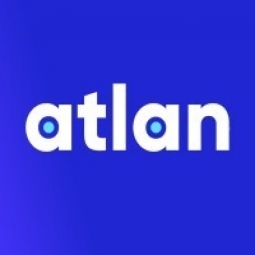Technology Category
- Application Infrastructure & Middleware - Database Management & Storage
- Infrastructure as a Service (IaaS) - Cloud Databases
Applicable Industries
- Cement
- Equipment & Machinery
Applicable Functions
- Maintenance
Use Cases
- Asset Health Management (AHM)
- Time Sensitive Networking
About The Customer
Snapcommerce is a tech-savvy organization that is building the next generation of mobile shopping across three verticals: travel, fintech, and goods. As the company quickly scaled from one to three verticals, its business stakeholders remained active users of its data platform and assets. Most Snapcommerce employees autonomously write SQL and build dashboards/reports to solve their day-to-day questions. The company recognized a need for source-of-truth documentation in a user-friendly format that would support their ongoing requirement and adoration for self-serve tools.
The Challenge
Snapcommerce, a tech-savvy organization that operates in the travel, fintech, and goods verticals, faced a challenge as it scaled its operations. The company's employees, who are active users of its data platform and assets, needed a reliable source-of-truth documentation in a user-friendly format to support their ongoing requirement for self-serve tools. The company was looking for a way to standardize and share data definitions across the organization. They also wanted a solution that eliminated the need for coding by business stakeholders and provided quick navigational capabilities. The challenge was to find a data catalog that met their specific criteria, including an easy-to-navigate interface, strong search capability, an automated crawler, clear definitions/glossary section, permission handling, a table preview and SQL component, and data lineage visualizations.
The Solution
Snapcommerce went through a selection process to find the best data catalog for their use case. They collected feedback from business stakeholders and evaluated tools based on their requirements. Atlan emerged as their favored tool, meeting their basic requirements and offering less commonly available, yet highly useful, features such as data lineage, user permission settings, and a glossary. The data lineage feature was particularly helpful for updating code, fixing bugs, onboarding, and deleting unused assets. User permissions enabled them to restrict and enable access depending on the asset’s sensitivity level, and the glossary hosted stakeholder-verified definitions for metrics in one place. The implementation of the data catalog required significant time and effort, including the building of data definitions and glossaries for all common tables and metrics in their database. The data analysts and engineers populated this information, and the business stakeholders reviewed it.
Operational Impact

Case Study missing?
Start adding your own!
Register with your work email and create a new case study profile for your business.
Related Case Studies.

Case Study
Smart Water Filtration Systems
Before working with Ayla Networks, Ozner was already using cloud connectivity to identify and solve water-filtration system malfunctions as well as to monitor filter cartridges for replacements.But, in June 2015, Ozner executives talked with Ayla about how the company might further improve its water systems with IoT technology. They liked what they heard from Ayla, but the executives needed to be sure that Ayla’s Agile IoT Platform provided the security and reliability Ozner required.

Case Study
IoT enabled Fleet Management with MindSphere
In view of growing competition, Gämmerler had a strong need to remain competitive via process optimization, reliability and gentle handling of printed products, even at highest press speeds. In addition, a digitalization initiative also included developing a key differentiation via data-driven services offers.

Case Study
Predictive Maintenance for Industrial Chillers
For global leaders in the industrial chiller manufacturing, reliability of the entire production process is of the utmost importance. Chillers are refrigeration systems that produce ice water to provide cooling for a process or industrial application. One of those leaders sought a way to respond to asset performance issues, even before they occur. The intelligence to guarantee maximum reliability of cooling devices is embedded (pre-alarming). A pre-alarming phase means that the cooling device still works, but symptoms may appear, telling manufacturers that a failure is likely to occur in the near future. Chillers who are not internet connected at that moment, provide little insight in this pre-alarming phase.

Case Study
Premium Appliance Producer Innovates with Internet of Everything
Sub-Zero faced the largest product launch in the company’s history:It wanted to launch 60 new products as scheduled while simultaneously opening a new “greenfield” production facility, yet still adhering to stringent quality requirements and manage issues from new supply-chain partners. A the same time, it wanted to increase staff productivity time and collaboration while reducing travel and costs.

Case Study
System 800xA at Indian Cement Plants
Chettinad Cement recognized that further efficiencies could be achieved in its cement manufacturing process. It looked to investing in comprehensive operational and control technologies to manage and derive productivity and energy efficiency gains from the assets on Line 2, their second plant in India.

Case Study
Integration of PLC with IoT for Bosch Rexroth
The application arises from the need to monitor and anticipate the problems of one or more machines managed by a PLC. These problems, often resulting from the accumulation over time of small discrepancies, require, when they occur, ex post technical operations maintenance.







